
When you’re interviewing prospective job candidates, your goal as an employer is usually to find the most qualified, likable, and competent candidate. When you’re the Roman Catholic Church, you also want to make sure those faggots don’t accidentally wind up priests.
The Church’s interview process for priests is like nothing you’ll see at Goldman Sachs, Enterprise Rent-a-Car, or Starbucks, relays the NYT.
“When was the last time you had sex?” all candidates for the seminary are asked. (The preferred answer: not for three years or more.)
“What kind of sexual experiences have you had?” is another common question. “Do you like pornography?”
Depending on the replies, and the results of standardized psychological tests, the interview may proceed into deeper waters: “Do you like children?” and “Do you like children more than you like people your own age?”
Funny, the guy at Wetzel’s Pretzel’s asked me the same thing about kids. Well, not that second question. To be sure, the Church has more reason to be concerned than your average employer: It’s you gay sinners out there who’ve been ruining the Church’s good name.
But let’s not forget perfectly acceptable invasive questions!
How about we take this to the next level?
Our newsletter is like a refreshing cocktail (or mocktail) of LGBTQ+ entertainment and pop culture, served up with a side of eye-candy.
But many of the questions are also aimed at another, equally sensitive mission: deciding whether gay applicants should be denied admission under complex recent guidelines from the Vatican that do not explicitly bar all gay candidates but would exclude most of them, even some who are celibate.
All the more important since 2005’s Vatican decision to bar gay men — “practicing homosexuals” — from seminaries.
In 2005, the Vatican sidestepped that ideological debate, but seemed to appease conservatives by issuing guidelines that would strictly limit the admission of gay men to Catholic seminaries. The guidelines, which bolstered existing rules that had been widely unenforced, defined homosexuality in both clear-cut and ambiguous ways: Men who actively “practice homosexuality” should be barred. But seminary rectors were left to discern the meaning of less obvious instructions to reject candidates who “show profoundly deep-rooted homosexual tendencies, or support the so-called gay culture.”
Though some Catholics saw room in that language for admitting celibate gay men, the Vatican followed up in 2008 with a clarification. “It is not enough to be sure that he is capable of abstaining from genital activity,” ruled the Vatican’s Congregation for Catholic Education, which issued the initial guidelines. “It is also necessary to evaluate his sexual orientation.”
Some seminary directors were baffled by the word “orientation,” said Thomas G. Plante, a psychologist and the director of the Spirituality and Health Institute at Santa Clara University, who screens seminary candidates for several dioceses in California and nationwide.
Then again, if you’re asking an adult man to begin a life where he wears a robe all day and hangs out with other dudes, you’re basically placing a job listing in the back of Frontiers.
Don't forget to share:















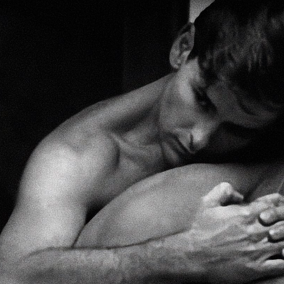












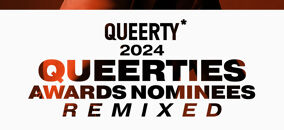



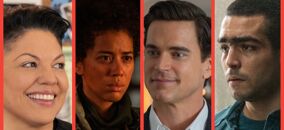
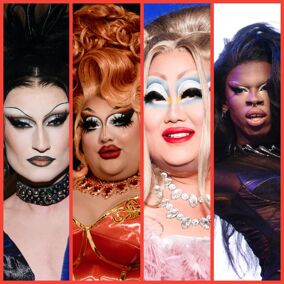





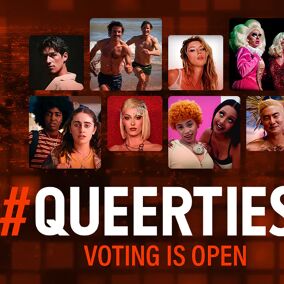

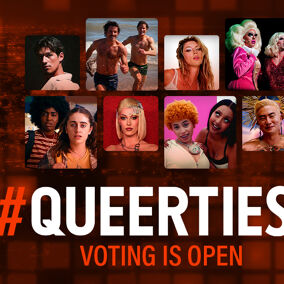
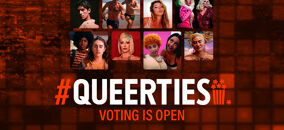




















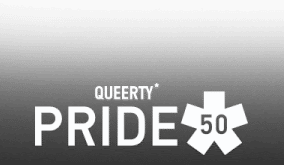



unclemike
A friend of mine who went through seminary said in many classes he was the only straight guy in the room.
PLAYS WELL WITH OTHERS
Such a wise move, because it is so well known that each seminary class is so very overflowing with men who want to become Priests…………..I have worked closely with a number of Dioceses thru business. And a good percentage of Priests are Gay, good people who actually attempt to do good. Most of them are as disgusted by kiddie diddling as the rest of the population. In their blind hatred towards all things Gay the vatican is screwing themselves worse than they already are by cutting off a good percentage of the very small group of persons still interested in the Priesthood………….
jeffree
Huge.Logic.Fail for the catholic church. Since priests are required to be celibate, that is abstain from sex, WTH does it matter which gender they are agreeing to NOT have sex with?
the church still confounds homosexuality with pedophilia: while they’re weeding out the gayz theyre losing focus on the main problem of child molestation.
I’m not a catholic, but have known several priests thru volunteer work with fostercare/ adoption stuff: decent guys committed to social justice…. and 3 out of the 4 were definitely gay. And, since enquiring minds want to know, not one of them made moves on me or any other guy I know.
BitchinaThong
Severe case of gay face from the priests in that pic.
PLAYS WELL WITH OTHERS
@jeffree:100% Co-sign. As per my post, the majority of them are Gay. And the vast majority do the good they are supposed to. Only to appeal to the rightwing anti-Gay zealots does the vatican thru Pope Benedick aka the boy nazi and Cardinal (broke the) Law spew the hate towards the Gays. By eliminating a huge percentage of the available candidates of the ever dwindling pool, they are performing the classic cut off your nose to spite your face move…………
Henry Holland
@BitchinaThong:
I’ll take the guy in the middle, please.
I have zero sympathy for the Catholic Church, but the days of men escaping to the priesthood to hide their queerness is gone. If they ever want to stop the decline in the number of priests, they’re going to have to get rid of the celibacy requirement. It would be good for the church and good for the priests.
Ogre Magi
All 3 of the guys in that photo look like fags
D.R.A.
If they’re trying to weed out gay people, they’re not doing a very good job of it, since a lot of priests are gay. Seriously, I’ve heard claims that 20 to 25 percent of Catholic priests are of the gaysexual variety. That’s 4 to 5 times the number in the general population!
PLAYS WELL WITH OTHERS
@D.R.A.:
They really, really are! I have dealt with Priests in business settings and when I was in college I bartended at a Gay bar. Was right around the corner from a Parish, three of the four Priests assigned to that Parish were regulars at the bar. They were nice guys, not creepy kiddie diddlers. They were discreet and even good tippers! And their motivations to do good were genuine. They even have their own terms for the services they perform. A “rice” is a wedding, a “crinkle” is a funeral. Was pretty funny around closing when one of them would say, “I gotta get outta here, I got a crinkle at 10 and a rice at noon”…….
Lamar
I don’t see how this makes any sense, if you’ve gone through years of training and studying the Bible and in the interview they basically ask you are you a paedophile you’re hardly gonna answer: “Yes, Yes I am!!!”.
counterpoll
There’s no valid way to screen for pædeophilia, unfortunately. A thorough criminal background check is a must, but not terribly reliable. The men they *should* need to worry about most are those with no reported sexual history with men or women –and of course, those are *exactly* the kind of men they’re looking for!
Dismissing gay men from seminary/ordination means that:
1) they’re missing out on finding the pædophiles, and
2) the pool of priests to choose from is sharply reduced.
I don’t have good statistics on this, but as other commenters indicate, the % of gay priests is very likely to be close to or greater than a third.
Many lesbian nuns, too, in my dealings with them.
The Church is shooting itself in the foot & the heart with this stupid witch-hunt.
cp
ossurworld
This trio looks like the Stepford Priests, right out of central casting. Scary.
Robert, NYC
What about the straight molesters within the cult? There are plenty of them. What is the criterion for weeding them out I’d like to know? What about those who philander, how do they weed them out as well?
Rob Moore
If we are all fortunate, the RCC won’t have enough recruits to keep going. I realized I was trying to believe in a fairytale and got over it. It is a racket as are all religions.
Black Catholic
I was born and raised Catholic. At one time, I thought about becoming a Priest to run away from whom I really was and that’s being gay. I realized after hanging out with a Franciscan, Diocese, and Jesuit priests, I realized a lot of priest were gay. I later had a sexual experience with a Puerto Rican seminarian. I think, many priests at the Vatican including the Pope might have had a sexual experience with a man in their life.
jeffree
@Rob Moore: Thats why we see more & more foreign priests & nuns: poor men/women from poor countries (India, Asia, Africa, South America) see they can work in Europe or the US & get a free education if they sign up to be priests or nuns. Even the catholic blogs wonder why so few American men & women are entering the religious life. Oops, they forget that its because the LG people have been warned not to even THINK about applying!
@Robert, NYC: Answer is because the church is so busy wasting its time kicking out gay men & women and so they dont have the resources to check into if the candidate is a kiddycuddler or a horndog. See countrypoll in comment # 11. And see PlaysWellWithMostOtherPeople in a few others.
Brighton John
@D.R.A.:
According to Kinsey, later supported by Masters and Johnson and Shere Hite in their pre-AIDS surveys, the number is one man in six totally homosexual, another one in six mostly homosexual, a third one man in six often homosexual.
That’s about half of all men.
Drake
Brighton, I think that you must have flunked statistics.
Jon Bon Jovi
Who are these 3 girls? They should be wearing habits. LOL
Rev Ray Dubuque
I’m not gay, and maybe I was too innocent to notice, but when I was a seminarian and then a priest in the 50’s and 60’s, there were very few gays who were “outed’ and they were forced out. I left the priesthood and church in ’70, so I have no idea where all the gay priests came from since then.
But if the Catholic church wants to get serious about “reform”, then it ought to worry about all the immorality which I expose in great detail at http://JesusWouldBeFurious.Org/ most of which has nothing to do with sexuality (whether homo- or hetero-)
gay catholics
My family is Catholic and several of us are gay. My brother is the only one who is deeply religious so he is on the path to become a priest but having a hard time finding a seminary to accept him, even though he’s celibate. One seminary even told him to imagine himself having sex with women so that he wouldn’t be gay anymore!